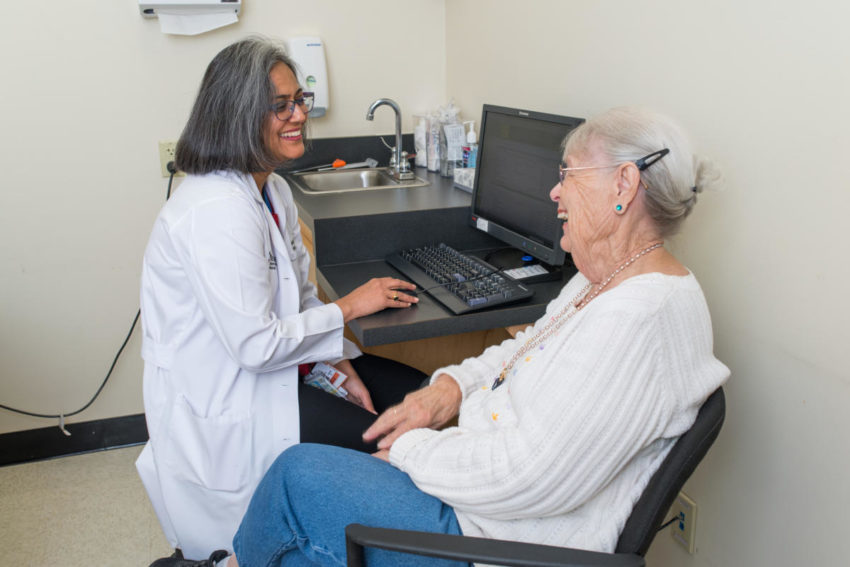At all times of the year, older adults should take simple steps to be safe, recommit to eating healthy and exercise at whatever level they can, said Neela K. Patel, M.D., who cares for patients of UT Medicine Senior Health, part of the clinical practice of the School of Medicine at the UT Health Science Center at San Antonio.
UT Medicine Senior Health, in collaboration with partners including CHRISTUS Santa Rosa Hospital – Medical Center, is a “patient-centered medical home,” Dr. Patel said.
“Sometimes we in medicine take care of older adults by having them go to a different doctor for each organ system, such as the nephrologist for the kidney, the cardiologist for the heart and the podiatrist for the foot, but there is no one doctor driving the bus,” she said.
“At UT Medicine Senior Health, our ‘Senior Health Model’ of care is a patient-centered medical home and neighborhood. We follow these patients wherever they may be — in the hospital, clinic, long-term care facility, assisted living, rehab hospital or at home. There is a concern to monitor their function and need for continuity of care, wherever they are.”
For older adults to be safe, Dr. Patel gives this action plan:
Medicines and immunizations
- Clean out your medicine cabinet. Get rid of out-of-date medications.
- Determine what preventive services, such as cancer screenings, you might need.
- Ask your doctor to review your immunizations to see if you require protection against pneumonia, shingles or other infection.
- Review your medications with your doctor at least once a year and whenever a medication is added or stopped
- Tell the doctor about the supplements you are taking, because not all are safe. Certain supplements can interfere with your medications.
Keep your home safe
- Clear walkways in your house or apartment.
- Assess whether furniture or other items are hazards to your mobility.
- Use your walking aids – canes, walkers or wheelchairs. Falls are among the chief causes of injuries and hospitalizations among older adults.
- Program 9-1-1 and other important numbers on your speed dial in the event of a fall or other emergency.
- Ask for help moving furniture or other heavy items. Avoid standing on a ladder or chair to change a light bulb or clean areas up high.
- Invest in and use newer lightweight and preferably cordless cleaning tools.
- Review your emergency kit and restock it with bandages, scissors and tape, triple antibiotic ointment, wound care dressings, your medication list and phone numbers.
- Remove boxes, newspapers, electrical cords and phone cords from walkways.
- Move coffee tables, magazine racks and plant stands from high-traffic areas.
- Secure loose rugs with double-faced tape, tacks or a slip-resistant backing — or remove loose rugs from your home.
- Repair loose, wooden floorboards and carpeting right away.
- Store clothing, dishes, food and other necessities within easy reach.
- Immediately clean spilled liquids, grease or food.
- Use nonslip mats in your bathtub or shower.
To help with older adults’ overall health and fitness, Dr. Patel shares these tips:
Eat right
- Drop the sodas and drink lots of water to stay hydrated.
- Eat nutrient-rich foods such as lean protein, low-fat or non-fat dairy, healthy fats such as nuts, and fruits and vegetables
- Don’t skip meals, but eat well-balanced, smaller servings every four hours. This prevents overeating.
Be active – use it or lose it!


